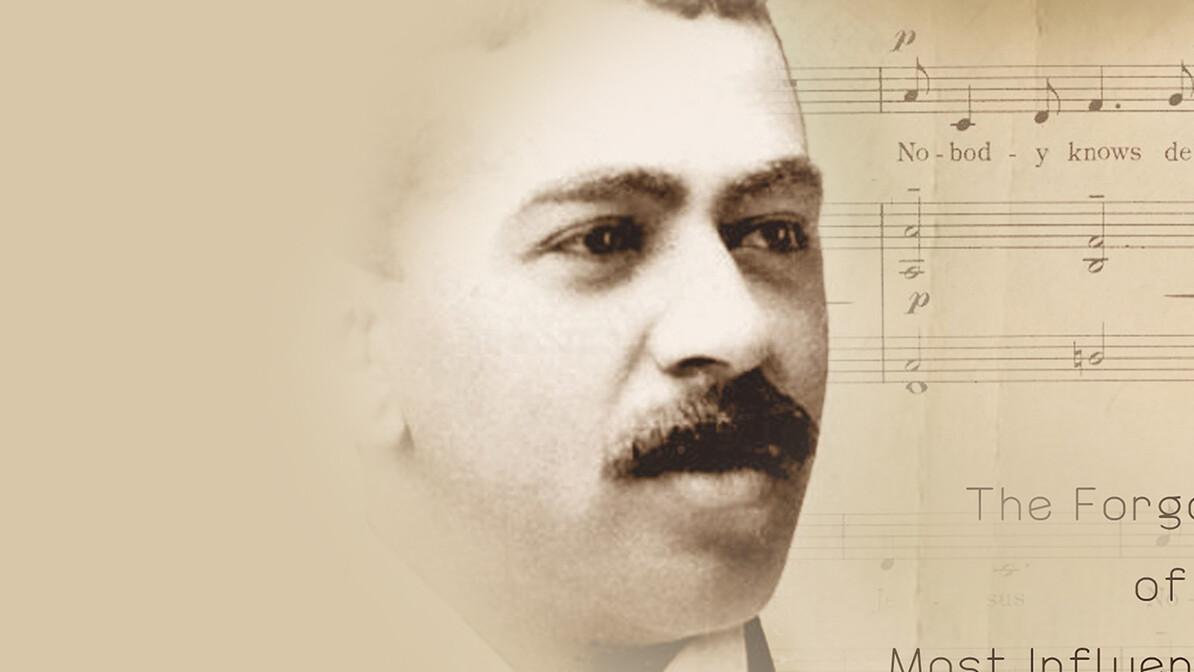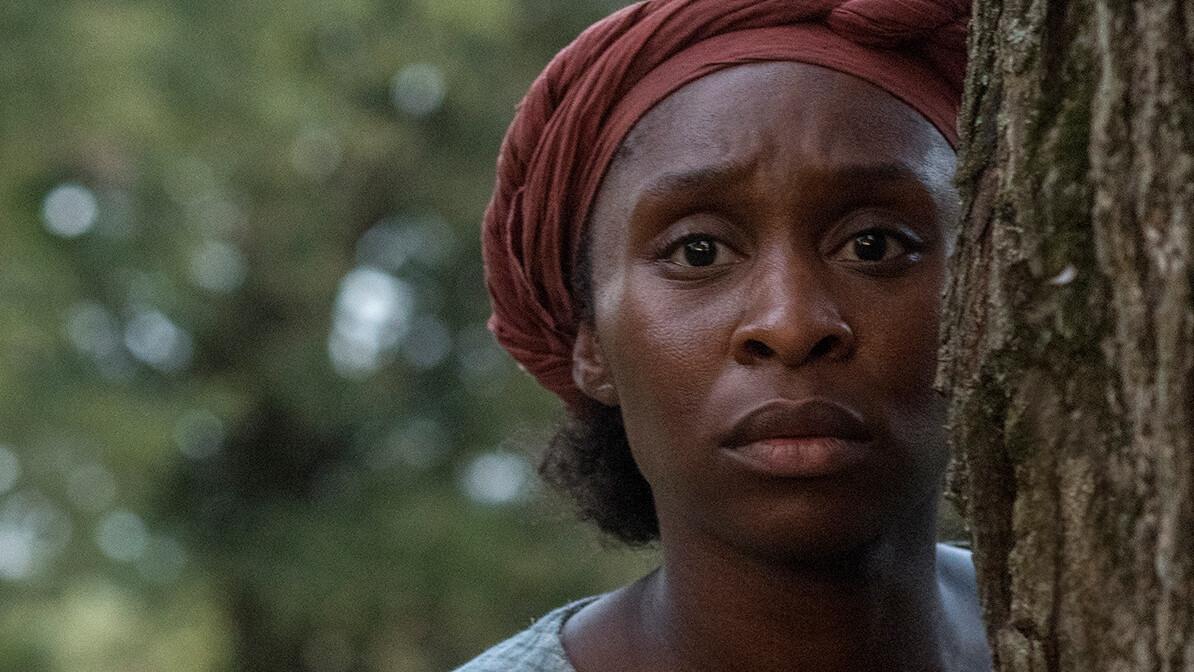- Home
- Entertainment
- Psalms, Hymns and Spiritual Songs: Harry T. Burleigh and the Birth of Freedom

Psalms, Hymns and Spiritual Songs: Harry T. Burleigh and the Birth of Freedom
Praise is one of the most powerful weapons available to the believer – yet it is often misunderstood or completely ignored as a path to victory in spiritual battle. The Apostle Paul writes:
…be filled with the Holy Spirit, singing psalms and hymns and spiritual songs among yourselves, and making music to the Lord in your hearts. (Eph. 5:18b-19, NLT)
It was the spiritual song – or ‘Spirituals’ – that gave hope to American slaves as they cried out to God, asking him to send a “Moses” to lead them out of their bondage as He did with the Hebrew slaves of the Old Testament.
These haunting melodies, rich with emotion and deeply moving, were songs of hope and anticipation. Some folks called them the sorrow songs. Eventually they would come to be known as the spirituals.
They were the soul-cry of the black slave, longing for freedom. They were born in the fields, among the hoed rows of cotton and tobacco. They sprang to life among the salty wharves of the Atlantic harbor and the Mississippi bayou. These songs rose to heaven above the whine of the sawmill and the roar of the waterfalls that drove them. From the painful cries of the slave woman, enduring yet another violation by the master, these ballads arose. They issued forth from the sweat and heartache of a lifetime of dehumanizing toil and humiliation.
Often these spiritual songs had their beginnings in the fervent heat of a backwoods religious meeting. Slaves gathered secretly to encourage one another and to cry out to God for freedom. This activity was against the law, and they knew that a severe beating or even death could face them if they were caught. But the joy and peace that they received from heaven in these meetings made it worth the risk they faced here on earth. The atmosphere in the midst of the woods was always charged with emotion. As they mourned their wretched existence, songs would develop spontaneously — psalms, hymns and spiritual songs. In time, these melodies were memorized and passed along from plantation to plantation.
Like a captive eagle, a man’s spirit cries out under the tethers of oppression. In the same way that a caged bird yearns for freedom, the Black slaves cried in anguish under their captivity — and the spirituals were born from those cries.
As the lashes came down on their backs, the pleas to God for justice and a homeland of freedom across the Jordan rose from their bellies. The spirituals became a bloodline, bringing the vital flow of hope and faith to the emotional and spiritual heart of the slave. Through these melodies they held onto the hope of survival. By them, a unique and vibrant community formed. They served as a second language that only the slaves understood. Through these songs they expressed in subtle words and melody their pain, loneliness, weariness, and sorrow — but also their hope and determination to live on.
Though the slaves were not allowed to read the Scriptures, they learned Bible stories at the village church, or on the plantation in religious meetings with the white folks. The Sunday morning routine included Sunday school, singing hymns, Bible reading and the sermon, where the preacher told them to obey the Misses and the Master.
But the slaves also learned God’s Word from abolitionist preachers from the North – both black and white – who bravely traveled through the southern states. After the “Great Awakening” some Southern whites who had come into the “new light” became Baptists. Much to the annoyance of many southerners, these new evangelicals began teaching the slaves about the way to salvation. Black and white evangelists alike poured out their lives, preaching the Gospel to the captives in secret late-night meetings.
A favorite analogy from the Scriptures used by these circuit preachers was the plight of the Hebrews of Exodus and God’s handpicked deliverer, Moses. The African slaves identified with this ancient oppressed people. They grew to understand that it was through their faith in the God of the Bible that freedom was given to these slaves of old.
The Old Testament fired their imagination. Had not the people of Israel been enslaved in Egypt? And did not God rescue them, leading them out of bondage and into the Promised Land? Quickly they formed a close kinship with Israel. Would not God do the same for them in their enslavement? Moses became their man too, and figuratively they implored him in song:
Go down Moses — way down in Egypt’s land
Tell old Pharaoh, let my people go
The capacity to funnel the trouble of their daily lives into song was the unique genius of the American slave. They were helped in this creation by their own black preachers who identified with what the congregation had been through since their last meeting. They saw husbands sold away from wives and children from parents. Their women lived under the chains of their master’s lusts and their men at the end of an overseer’s whip. Their environment, with the lash in frequent use, told them they were in no way significant as persons — that they were important only as property. But as the slaves learned of the God of the Bible, they began to see themselves as His children.
“No, no, no!” their black preachers dramatically exhorted them, “you are not slaves. You are the apple of God’s eye, made in His very own image.” They learned that it was through a good and benevolent God, who heard the cry of the Hebrew slaves, that freedom came. They realized that they were not inferior to the white man, just as the Hebrews were not inferior to the Egyptians.
The spirituals attested to this and proclaimed the goodness of this God and His ultimate triumph over evil. They would taste freedom, they believed, across the Jordan River of death — and some sweet day in the here and now. Looking forward to that day of freedom, the slaves sang of the “Deep River,” with its mighty waters flowing into distant horizons. As the embers glowed in the camp fire, deep in the heart of the forest, they would sing:
Deep river — my home is over Jordan,
Deep river, Lord, I want to cross over into campground.
For a time, the slaves simply bypassed the New Testament, especially since their white taskmasters used it to justify slavery as an acceptable way of life. But there was something about Jesus hanging there upon the hard, wooden cross that captivated their spirits. Here was a man who was beaten like they were. He was spit upon. He was falsely accused. He was imprisoned for a crime he did not commit. Finally, he was hung on a tree, a method of execution familiar to the slaves. Through all of these indignities, Jesus prayed, “Father, forgive them, for they know not what they do.”
“How was he able to forgive?” they questioned. “What was it that enabled him to love those who were unlovable?” Was he in pain? They were in pain. Did he have to drink the cup of suffering? They had to drink theirs, too. Yes, their cross was one with his cross. They came to believe that Jesus died for the sins of all men, of every color. He had to be who he said he was. How else could he have done what he did?
In time, they embraced Jesus as their Savior, and they experienced his peace, his grace, his forgiveness – and remarkably, they found hope for the future.
From this relationship they were able to sing:
Sometimes it causes me to tremble, tremble, tremble.
Were you there when they crucified my Lord?
From the cross they felt a mighty emergence of the divine will, breaking down the barriers that separated man from man, and man from God. And so, instead of taking the destructive road to violence, many began to hum, then to sing, and sometimes to shout the spirituals — a cry to God for freedom and a declaration of faith in His ability to provide it.
During the first half of the Twentieth Century – a time of tremendous racial turmoil in the United States – an African-American man named Harry T. Burleigh shined as a world-famous composer, arranger, internationally respected editor, and courageous artistic pioneer.
The grandson of a slave, Burleigh overcame formidable obstacles to become a leader in the musical world of his day. He is best known for his artistic arrangements of the beloved ‘Spirituals’. At the height of Jim Crow in America, his life and work bridged the gap between two races and two cultures, and paved the way for the emergence of a musical style that was truly American.
Listen to Harry T. Burleigh sing “Go Down, Moses” from a 1919 recording.
Music historian Rene DeLerma said of him, “In Harry T. Burleigh you have the birth of American music.” But his legacy remains his artistic arrangements of the hauntingly beautiful Spirituals – a gift that has brought freedom and hope to countless people around the world.
…
Order your copy of Nobody Knows: The Forgotten Story of One of the Most Influential Figures in American Music by Craig von Buseck
Trending Now
Sign up today for your Inspiration Today Daily Newsletter
Supercharge your faith and ignite your spirit. Find hope in God’s word. Receive your Inspiration Today newsletter now!
Dr. Craig von Buseck
Dr. Craig von Buseck is an award-winning author, speaker, and Christian ministry leader known for his engaging storytelling and biblically grounded insights. His books, teachings, and inspirational messages encourage believers to trust God's guidance, walk in faith, and recognize His hand in everyday life.
Craig's writing blends historical research, spiritual wisdom, and practical application, making his work meaningful to readers across the Christian community.
Learn more about his books, teachings, and ministry at vonbuseck.com.
Related Articles
March 10, 2025
Finding Total Victory on the Road to Championship
I have been playing competitive golf for 55 years. Through the various stages of my life, my…
March 7, 2025
Average Joe Movie: SCOTUS, Praying Football Coach Backstory
When Coach Joe Kennedy knelt to pray at the 50-yard line after a high school football game, he had…
February 28, 2025
The Power of Story: A Muslim Journey to Hope
Storytelling is one of the oldest and most powerful ways to touch the human heart. Parents tell…
February 27, 2025
‘Harriet’ Movie: Courage, Freedom, Faith
Antebellum abolitionist Harriet Tubman had convictions and courage that helped free herself…
Next Steps To Strengthen Your Walk
Inspiration Today Newsletter
Supercharge your faith and ignite your spirit. Find hope in God’s word. Receive your Inspiration Today newsletter now!
Christian Articles
Find articles to strengthen your walk and grow your faith. We have a wide range of topics and authors for you.
Submit A Prayer Request
We are here for you. Simply click on the button below to reach us by form, email or phone. Together we will lift our hearts and voices with you in prayer.





